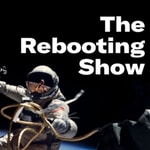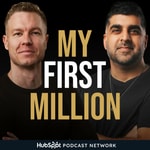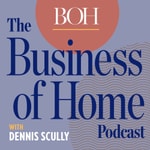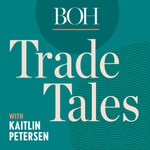The Rebooting Show – Détails, épisodes et analyse
Détails du podcast
Informations techniques et générales issues du flux RSS du podcast.

The Rebooting Show
Brian Morrissey
Fréquence : 1 épisode/8j. Total Éps: 174

Classements récents
Dernières positions dans les classements Apple Podcasts et Spotify.
Apple Podcasts
🇬🇧 Grande Bretagne - businessNews
28/07/2025#72🇺🇸 États-Unis - businessNews
28/07/2025#70🇬🇧 Grande Bretagne - businessNews
27/07/2025#49🇺🇸 États-Unis - businessNews
27/07/2025#73🇺🇸 États-Unis - businessNews
26/07/2025#70🇩🇪 Allemagne - businessNews
25/07/2025#82🇺🇸 États-Unis - businessNews
25/07/2025#72🇩🇪 Allemagne - businessNews
24/07/2025#65🇺🇸 États-Unis - businessNews
24/07/2025#79🇺🇸 États-Unis - businessNews
21/07/2025#87
Spotify
Aucun classement récent disponible
Liens partagés entre épisodes et podcasts
Liens présents dans les descriptions d'épisodes et autres podcasts les utilisant également.
See all- https://www.readtangle.com/
670 partages
- https://businessofhome.com/
183 partages
- https://trapital.co/
55 partages
Qualité et score du flux RSS
Évaluation technique de la qualité et de la structure du flux RSS.
See allScore global : 38%
Historique des publications
Répartition mensuelle des publications d'épisodes au fil des années.
Scott Messer on publishing’s “pivot to everything”
Épisode 134
lundi 19 août 2024 • Durée 46:39
Scott Messer is founder of media advisory firm Messer Media and former svp of media at Leaf Group. Scott is in the weeds on the digital ad ecosystem, and he broke down the current state of play for publishers. We discussed why traffic declines are still the No. 1 challenge for publishers, why publishers are shifting from traditional monetization mechanisms, retail media as potential allies, and why “curation” is the latest hot new trend in ad tech, even if it sounds quite a lot like what ad networks have always done.
Winning at affiliate
Épisode 133
mardi 13 août 2024 • Durée 52:00
In a spotlight episode of The Rebooting Show, I spoke with Affinity Global CEO Lavin Punjabi for his view of how publishers adapt their affiliate operations. Affinity operates NucleusLinks, an affiliate operations platform that serves as something akin to Google Ad Manager for affiliate operations. Some takeaways:
- Many publishers are playing catch up. Affiliate marketing is one of the oldest internet business models, with its growth turbocharged by the ease and rise of e-commerce. Many legacy publishers were behind in adopting affiliate models, seeing performance ads as scraping the bottom of the barrel compared to impression models. “The biggest publishers in the world are scrambling to compete in this area that they kind of ignored for a generation,” Lavin said.
- Affiliate stresses silos. The entire idea of affiliate runs contrary to the notion of church and state. At one of The Rebooting’s dinners focused on commerce, I heard a large publisher lament how the editorial team would battle to control personal finance reviews rather than the commerce team. They were basically working against each other internally. "Some publishers it's the main thing, but for a lot of marquee publishers, it's a department, and they have to figure out where it fits because it's not really editorial, but it's not really sales."
- Dotdash Meredith is an anomaly. Dotdash Meredith is the manifestation of these worlds colliding, with the internet-native Dotdash taking over the legacy Time Inc publications. It’s telling that as publishers sound the alarm over AI, DDDM has weathered this storm and returned to growth. "They came from a commerce first angle, which is operated with CPS for a large degree. And then eventually with Meredith, which was CPM, they tried to find middle ground."
Can ads support news?
Épisode 124
lundi 17 juin 2024 • Durée 32:34
This episode from Cannes of The Rebooting Show, presented by Outbrain, features David Kostman (CEO of Outbrain), Kate Scott-Dawkins (Global President for Business Intelligence at GroupM), and Johanna Mayer-Jones (chief advertising officer of the Washington Post). They discuss the ad market's growth contrasted with the decline in ad revenue for news publishers. Emphasizing the value of trusted journalism, they explore the importance of advanced audience targeting and AI in creating brand-safe environments. The conversation highlights the need for new strategies and better communication to showcase the value of news audiences to advertisers.
Skip to topic:
- 00:00 Introduction
- 01:43 Panel Introduction and Discussion Overview
- 02:07 Ad Challenges in the News Business
- 06:31 Impact of Keyword Block Lists
- 08:19 Brand Suitability and Safety
- 23:23 Performance Marketing Trends
Human Ventures' Joe Marchese in defense of the bundle
Épisode 34
mardi 12 juillet 2022 • Durée 56:47
The pendulum always swings. Media regularly oscillates between periods of bundling and periods of unbundling. Bundles tend to rub people the wrong way because they feel they pay for stuff they don’t want. The downside is unbundling can be a complete hassle and the supposed savings quickly evaporate. Just look at what you’re paying now for various streaming services (themselves mini-bundles) instead of cable service. Inevitably, whether it’s the proliferation of newsletters or the many streaming products, we’ll see rebundling take off.
“The bundle was the absolute worst form of entertainment delivery, except for every other one,” said Human Ventures executive chairman Joe Marchese. “Consumers are looking for a rebundle and these streamers are gonna have some sort of rebundle coming. News and Substack has some sort of rebundle coming. Everything that's old is gonna be new again over the next couple of months.”
Other topics:
- Media is often a terrible standalone business but is good support for other businesses. The TV business is now dominated by tech companies, a trend likely to continue. That isn’t particularly new. “Media has historically been owned by non-media businesses,” Joe notes, going back to early radio and then cable systems owning TV networks. “The business of media has outsized influence but undersized monetization.” The result: “I don’t know the media business works at scale without alternative models.”
- The "permission to curate" is powerful. In a world of near-infinite media choices, people need some way to make sense of what’s good and what’s bad. That’s where trust comes into play. People can turn to algorithms like Google’s or Facebook’s to make sense of what’s important to them, or they can turn to publishing brands and individual brands. “Brands matter for the curation of goods and services so that people don't have the paralysis of infinite choice,” Joe said.
- Not everything is performance advertising. With ample data, sophisticated targeting and analytics, it can sometimes seem that brand advertising is an anachronism as the media world shifts firmly to “performance advertising,” or what used to be known as direct response. “In a world where we have dynamic targeting and we know what each household is watching, the advertising experience is actually worse,” Joe said. “How did we get worse at advertising in a CTV advertising environment than broadcast television 40 years ago?”
Neil Vogel on Dotdash Meredith's best, fastest, fewest strategy
Épisode 33
mardi 28 juin 2022 • Durée 47:12
Everyone loves a comeback, but few companies get them in the consumer internet business. ( Most companies have peaked and then set course on inevitable decline, with new owners either milking the asset on the way down or floundering unsuccessfully to reinvigorate the asset. That’s why it’s noteworthy what IAC has done with Internet 1.0 stalwart About.com. It was a company long past its peak in the first phase of digital publishing, having begun all the way back in 1994 as a place to find “expert” answers. Some takeaways from our conversation:
- Having a good user experience doesn’t have to come at the expense of the business. Media is hard. I always mention how difficult it is to satisfy different constituencies: audience, advertisers, algorithms. Dotdash has proven that you can have fewer ads, faster sites and better content and still make more money.
- Print still has an important role. Everyone likes to call things dead, and print isn’t going to be the driver of many media businesses going forward. But it still plays a role. I think it’s a good sign that someone like Neil is bullish on print, run efficiently, doing the job of being a statement of the brand.
- Driving transactions is critical, but maybe not building products. There’s lots of talk of commerce media here in Cannes. Publishers have seen their commerce businesses as bright spots. Dotdash has a large chunk of their business in driving transactions. Still, Neil strikes a note of caution when discussing turning that into actually making products versus passing on customer to product companies. These are often different businesses.
Tortoise Media's Katie Vanneck-Smith on slow news
Épisode 32
mardi 21 juin 2022 • Durée 27:53
Katie Vanneck-Smith, formerly president of Dow Jones, co-founded Tortoise Media, a UK-based publisher dedicated to “slow news.” The problem she and her co-founders diagnosed: “The problem isn’t just fake news or junk news, because there’s a lot that’s good – it’s just that there’s so much of it, and so much of it is the same. In a hurry, partial and confusing. Too many newsrooms chasing the news, but missing the story.”
The slow approach means that Tortoise confines itself to producing one podcast episode a day, one daily newsletter (in email and audio), one multi-part series per month and one book a quarter. Katie discussed the Tortoise approach in an on-stage conversation at the FIPP World Congress in Cascais, Portugal.
Outsider CEO Deirdre Lester on building a lifestyle brand
Épisode 31
mardi 14 juin 2022 • Durée 43:57
Outsider is a media and commerce brand focused on a particular view of “the American lifestyle” that, to me, takes its cues from the South, emphasizing college football, hunting, fishing, wraparound sunglasses and the like. Recently, Deirdre Lester moved from CRO of Barstool Sports to become the CEO of Outsider. The goal is similar to Barstool: Use personality-driven publishing – former NFL QB Jay Cutler is chief design officer at Outsider – to build a deep connection with a like-minded community, then complement the media with commerce operations. Some key takeaways from our conversation:
Finding the sweet spot between individuals and institutions is a big opportunity. The unbundling of publishing has put the focus on individual creators, but there are only so many Mr. Beasts in the world. The more tangible opportunity is the Goldilocks approach with institutional brands that can tap into the power of individuals to establish tight ties with an audience. Outsider is doing that with Cutler and popular podcaster Marty Smith.
Lifestyle publishing brands are more about AOV than CPM. Publishing has been stuck in a default mindset that the audience either pays with data and attention to ads or with money through subscriptions. Commerce – real commerce, not just affiliate links – offers a third way to build product companies with media used for efficient distribution and, ideally, premium pricing power based on the credibility established with customers.
Doing both media and products is hard. These are different businesses with different dynamics. The rough patch hit by Food52, a prime example of publishers pivoting to product, shows how difficult it is to manage both publishing and products. Publishing is all about managing conflicts, and that can get even messier when publishing is in the service of moving products.
Time's Keith Grossman on why Web3 is here to stay
Épisode 30
mardi 7 juin 2022 • Durée 50:14
The crypto winter has pitched the giddy excitement over the endless possibilities of Web3. The drumbeat of negativity hasn’t shaken Time president Keith Grossman’s confidence in Web3 providing a new path to sustainable business models. Time, now under the ownership of billionaires Marc and Linda Benioff, has become the most aggressive large publishing brand in exploring the possibilities of Web3. To date, Time has:
- Minted iconic covers as NFTs and generated nearly $500,000 in proceeds
- Collaborated with artists to reinterpret Time covers as part of the Timepieces Web3 community
- Dipped its foot in the metaverse with a Galaxy Digital deal to create a metaverse newsletter and a metaverse category of the Time 100.
“I started to see collaboration. I started to see Web 2.0 is about the audience, but Web3 is really about community,” Keith told me on this week’s episode of The Rebooting Show. “I started to see a different way in which brands could evolve. “
Morning Brew's Austin Rief on the creator economy
Épisode 29
mardi 31 mai 2022 • Durée 46:32
Morning Brew is a breakout success in digital media, turning an email newsletter of business news delivered with a witty tone, into a robust digital media business that now has over 4 million email subscribers, with another 1 million to its growing stable of vertical industry email newsletters.Now, Morning Brew is focused beyond its original product, the daily Morning Brew publication, by building a roster of five B2B offshoots, with two more in the works, in addition to podcasts and video shows. A key growth area: individual creators. The bet: Morning Brew can use its infrastructure – editing, production and, crucially, monetization – to partner with creators who don’t want to do it all on their own.
Permutive's Joe Root on the pivot to privacy
Épisode 28
mardi 24 mai 2022 • Durée 39:15
Since its founding eight years ago, Permutive has bet on privacy being a key consideration in the future of ad tech. Permutive CEO Joe Root delves into what privacy-conscious advertising looks like – and if it’s possible. Highlights:
The GDPR was a harbinger. Most U.S. companies didn’t understand how far-reaching the General Data Protection Regulation would be to them. The landmark move to rein in the collection and use of user data without consent is not without its critics, but it set in motion a focus on privacy that led to Apple’s move to crack down on data collection and the ultimate end of the third-party cookie.
U.S. dominance in digital markets is ending. The tech industry has been mostly an American creation, dominated by U.S. platforms and largely operating along the extreme free market proclivities that are a hallmark of American capitalism. But Europe remains a regulatory superpower, and it is determined to use those powers to shape digital markets.
Consent – real consent – is inevitable. Clicking out of endless cookie consent pop-ups is a wonder of traveling in Europe, on par with being able to take a train to the airport. The GDPR led to these consent requests as ad tech’s response to the regulation, giving the appearance of consent but not really. That’s going to change.
Context is having a moment. The original targeting signal for advertising was context. Someone reading Field & Stream is likely into the outdoors if you’re selling fly-fishing gear. Digital advertising shifted to taking all kinds of signals in order to target ads to individuals. With the collection and application of other signals growing more difficult and expensive, the pendulum is shifting back to contextual signals.
Big publishers stand to benefit. The new era of digital advertising will have winners and losers, with many still to be determined. One divide that will likely open is between the biggest publishers that have enough user data of their own to be compelling to advertisers who can’t simply rely on the cookie targeting and the long tail of sites that will likely find competing for ad dollars far more difficult.









